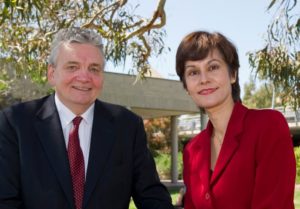
With two criminal convictions already overturned, South Australia’s new criminal review legislation has shown its value: Flinders law lecturer Ms Bibi Sangha says three more cases are in the pipeline, with potentially many more to come.
Ms Sangha and her research collaborator Dr Bob Moles were instrumental in the introduction of the new right to appeal legislation in South Australia in 2013 and of a parallel law in Tasmania in 2015. As guest speakers at a discussion on miscarriages of justice at the Sydney University Law School and Institute of Criminology on April 28, they urged New South Wales and other states to follow suit.
Ms Sangha and Dr Moles joined a panel that included two American experts – Professor Jon Gould, who has conducted a major four-year study, Preventing Wrongful Convictions, funded by the National Institute of Justice, and Professor Richard Leo, who shared his research on reasons that contribute to false confessions.
Bibi Sangha said wrongful convictions are not only a cause of untold human misery for innocent individuals, but also discredit the criminal justice system and cause a loss of public confidence.
The overturning of the conviction of Henry Keogh in December 2014, after he had been imprisoned for 20 years, turned on the unreliable evidence provided by Dr Colin Manock, South Australia’s chief pathologist from 1968 to 1995. Ms Sangha and Dr Moles say that question marks now hang over a substantial number of criminal cases in which Manock appeared as a scientific expert, as well as casting doubt on the findings of the thousands of autopsies he conducted.
To deal with what may become a flood of appeals, the pair are advocating the creation of a special criminal review commission in order to prevent overloading of the courts.
Ms Sangha told the audience in Sydney about the legal principles that drove the introduction of the review legislation, while Dr Moles discussed some of the specific cases and the institutional failures which had occurred concerning the unreliability of forensic evidence presented by Dr Manock.
”Because our audience was a national one, including many practitioners from New South Wales, it was useful to lay the foundations, to explain how and why we are ahead of them, and then to get into specific South Australian cases,” Ms Sangha said.
A recent special issue of the Flinders Law Journal is devoted to miscarriages of justice, and contains papers by Ms Sangha, Dr Moles and seven other contributors.

